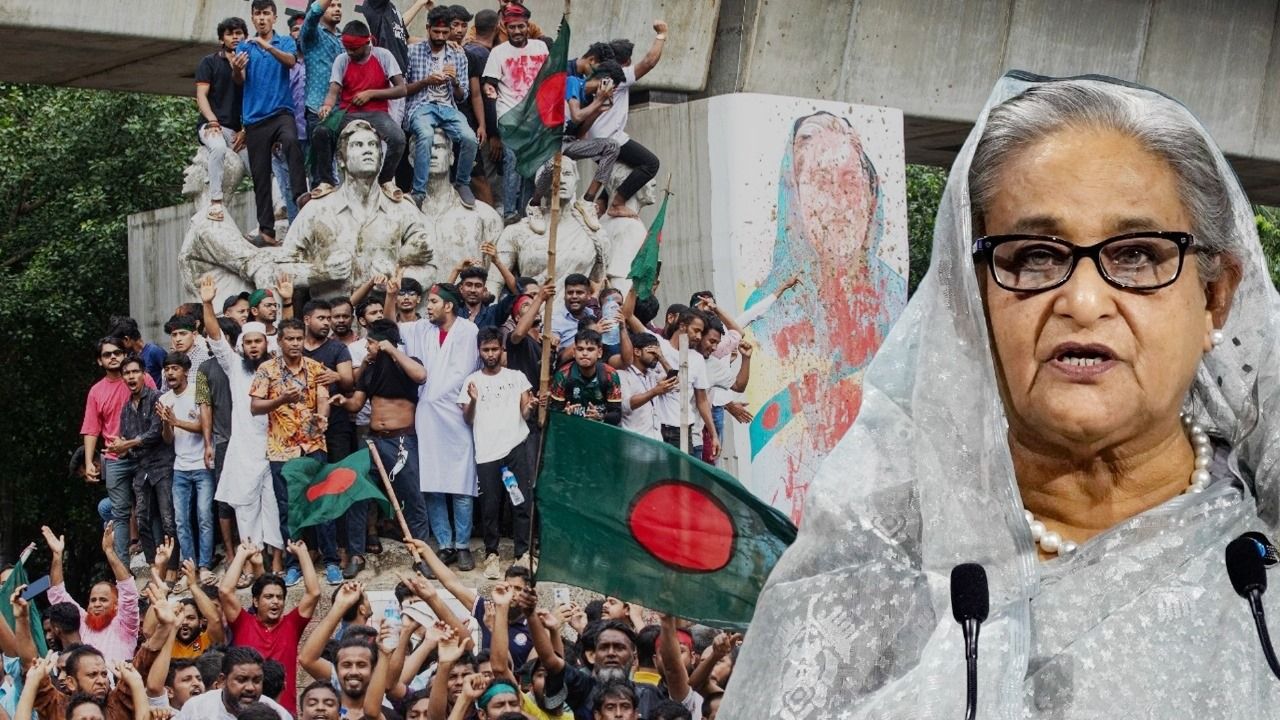Dhaka: Bangladesh’s embattled Prime Minister Sheikh Hasina resigned and fled the country on Monday after a month-long student protest over reservations in government jobs leading to a situation of anarchy and unrest. Hasina landed at Hindon Airbase on the outskirts of Delhi and may seek asylum in the United Kingdom, as per reports.
President Mohammed Shahabuddin announced the dissolution of the Parliament which was formed after elections in January 2024. Former prime minister and political rival of Sheikh Hasina, Khaleda Zia was also freed from jail following massive protests and unrest across Bangladesh.
Ever since Hasina resumed power in 2009, Bangladesh has been a key ally of India, witnessing numerous milestones in the bilateral relationship ensuring mutual benefits for both nations.
FTA and Trade Boost:
Bangladesh is India’s largest trading partner in the subcontinent, while New Delhi is Dhaka’s second-largest partner, after Beijing. According to the Union Ministry of Commerce, their total bilateral trade amounted to $13 billion in the financial year 2023-24.
In October 2023, both countries began discussions on a Free-Trade Agreement (FTA) that had significant potential to enhance bilateral trade between the two neighbours, according to the World Bank.
An FTA between the two countries will also foster economic benefits for India’s neighbour as well.
Eradicating Anti-India Terrorists:
Under the leadership of Sheikh Hasina, the Bangladeshi government has successfully eradicated anti-India terrorists, transforming the country from a former haven for such activities. This has led to a significant decline in terrorism and militancy in the northeastern region of India, fostering peace and stability. However, with the end of Sheikh Hasina’s era approaching, there are concerns about the potential resurgence of anti-India activities from Bangladeshi soil. Previously, Bangladesh served as a transit route for weapons supporting various insurgent movements in India.
Harsh Vardhan Shringla, former Foreign Secretary of India and envoy to Bangladesh has expressed concerns that an unstable Bangladesh could contribute to instability in parts of India.
Ties Closest During Regime
India-Bangladesh ties were closest during Hasina’s tenure fulfilling each other’s needs and Hasina was seen as Pro-India in the international community. Bangladesh under Hasina was also central to New Delhi’s Vision for the subcontinent. Pakistan and China were desperately trying to establish a regime which would be unfriendly to India.
As Hasina’s Awami League is out of power, Pro-China and Pro-Pakistan forces will take over the government as Khaleda Zia’s BNP along with Jamaat-e-Islami are likely to form the government.
Under Sheikh Hasina, Bangladesh and India have worked closely on various issues, including trade, security, and cultural exchange.
Land Boundary Agreement (LBA):
One of the significant achievements during her tenure was the historical Land Boundary Agreement. In 2015, the two countries ratified the 1974 Land Boundary Agreement, which resolved the longstanding border disputes and involved an exchange of enclaves and solved this old-decade problem.
What Milestones Did India-Bangladesh Achieve During PM Hasina’s 15-Year Tenure world-news World News | Latest International Global World News | Todays Breaking News Headlines




